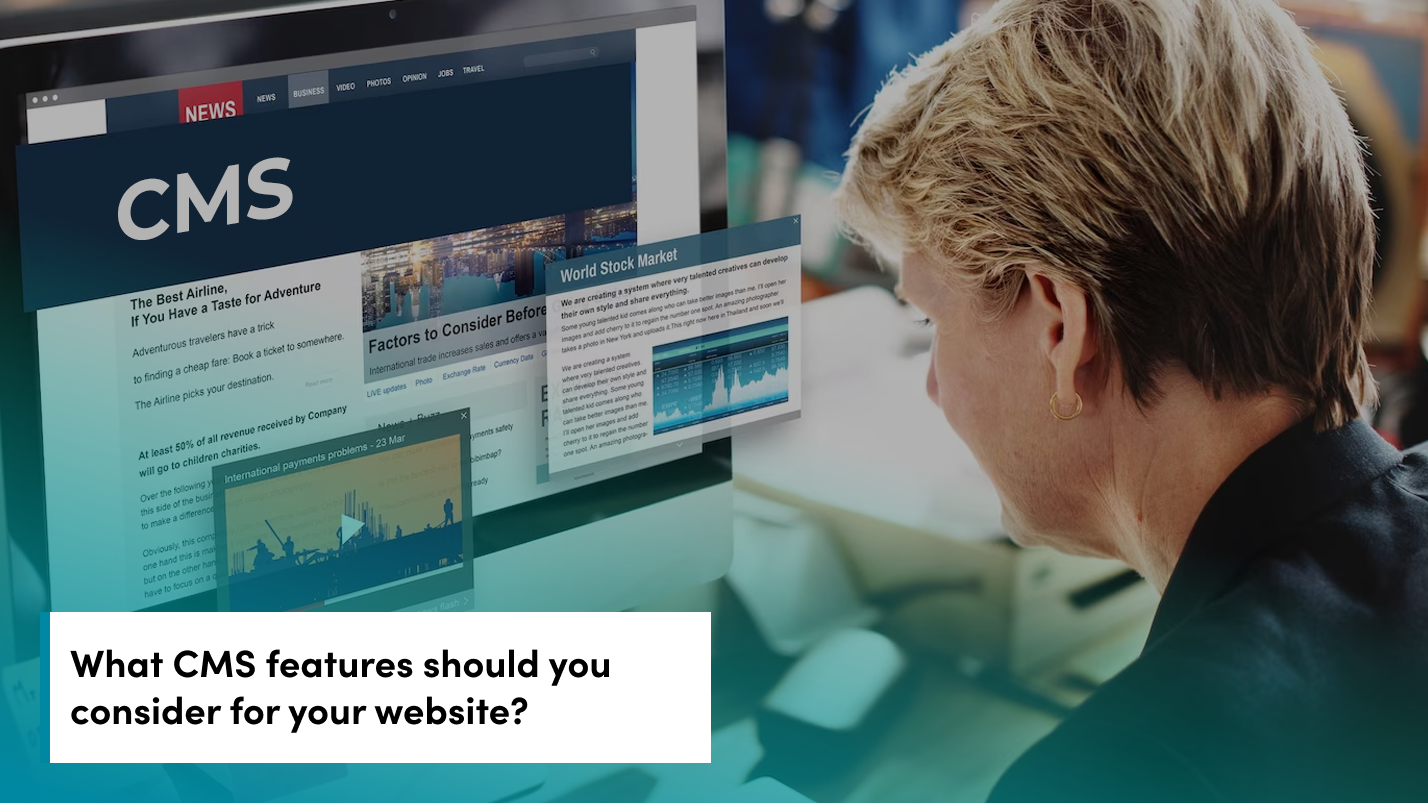Whether you’re building a corporate website or setting up an eCommerce store, a CMS allows you to manage your website’s content, appearance, and functionality. Multiple content management systems are available, each providing a web development company with unique functionalities to fulfill specific business requirements. Ensuring that the CMS features align with your specific needs is crucial to making the right choice for your content management system. Let me give you an example. if your goal is to enhance your content for search engines, consider using a CMS equipped with SEO tools.
5 Essential CMS Features That You Should Implement In Your Website
Easy Content Editing and Management
While evaluating the different content management system features, choose a platform that facilitates easy content editing and management. Many users may not be familiar with HTML or coding languages.
This is why a simple content editor equipped with drag-and-drop functionalities is invaluable. This type of editor empowers users to easily edit and create content without relying on complex knowledge bases or documentation.
You can save time and money by providing such an intuitive content editing experience. Users can quickly learn how to publish content without extensive training and make the changes required in each content. A prime example of such a user-friendly content editor is found in WordPress. It operates on the WYSIWYG (What You See Is What You Get) principle.
Many other CMS platforms also offer robust content editors with extensive options and support for drag-and-drop functionality. These enterprise content management features
enhance the editor’s capabilities and ultimately contribute to creating more engaging and interactive content.
Social Media Integration
This is one of those features you should consider while availing CMS web development services for your website creation project. Your CMS has the potential to enhance your social media following with each post you make. Some platforms come equipped with built-in integrations that seamlessly display social media photos and posts alongside your website content.
Meanwhile, other CMS tools may need additional plugins to perform the following tasks:
- Facilitate easy sharing of new content through buttons for Facebook, Twitter, and other platforms.
- Display the number of likes a post has received and the number of times it has been shared.
- Present an Instagram feed on either the side or bottom of your website.
- Highlight visually appealing buttons that provide links to different social media platforms.
- Integrate YouTube videos seamlessly into your blog posts.
Linking your social media accounts to your CMS allows for automatically updating the content. However, if your CMS lacks this capability, you must manually share your content across your social profiles and website. Additionally, incorporate buttons or links to your social media pages within your menu or at the conclusion of each post.
What other content management system features should you consider?
Robust Security and Reliability
Ensuring the security and reliability of your CMS platform is important for safeguarding the well-being of your site’s visitors. Additionally, this helps protect your site against malicious intrusion attempts. Therefore, security and reliability should be a major consideration while collaborating with a web development company for your business project.
Most content management systems incorporate robust security measures and consistently update their systems to address threats. However, you must select a CMS that provides simple backup solutions and regularly delivers security patches to ensure the ongoing safety of your data.
For instance, WordPress offers two distinct types of updates: security updates and major releases. While significant releases introduce new features, security updates are dedicated to sealing any vulnerabilities that hackers might exploit.
Even though most CMS tools already offer a high level of security, you must consider additional security measures. It includes implementing two-factor authentication and opting for advanced website protection.
Version Control and Backups
It’s also worth considering CMS software that offers a built-in mechanism for saving and tracking your work as you progress. There might come a time when your hired web development company must revert to a previous version of your site. It’s quite convenient when a CMS simplifies this process.
Furthermore, it’s essential to evaluate how the CMS manages backups. Are they automated, or do you need to create them manually? Are backup features integrated directly into the CMS, or do you need to install an extension? It’s prudent to clarify these details upfront rather than waiting for a scenario involving data loss, website malfunction, or a security breach.
Having an extra copy of your website readily available becomes invaluable in any of these circumstances. It’s also worth noting that your web hosting provider might offer backup services for your website. If you have a hosting plan, reviewing its provisions to determine whether such services are included is advisable.
Analytics and Reporting
Website analytics is one of the top CMS features to consider. They serve as a valuable tool for understanding the impact of your content and strategizing for future posts. Google Analytics, a cost-free service, seamlessly integrates with any website.
Numerous CMS tools offer functionalities that assist you in linking your site to a Google Analytics account. If this integration isn’t readily available, ask your hired web development company to incorporate the necessary code into your website.
It’s worth noting, however, that Google Analytics isn’t the only option in this regard. Certain CMS platforms feature in-built analytics dashboards designed to compile and present content marketing metrics. These dashboards provide insights into various aspects of your website’s performance, including:
- The frequency of website visits on a daily, weekly, and monthly basis
- The geographic locations of your website’s visitors
- The types of devices employed by visitors to access your site
- The specific pages from which visitors enter and exit your website
- The duration for which visitors explore your site
Suppose visitors respond positively to specific content types or display increased activity on particular days and at specific times. In that case, you can leverage this information to shape the development of your content strategy.
Many CMS platforms also provide functionality to track the activity of users who posted content or accessed the system. These internal metrics prove particularly useful in addressing some of the complexities associated with a distributed workforce.
Even when collaborating with a team spanning multiple time zones, you can rely on these reports to ascertain the timing of modifications and detect any corresponding actions taken.
Conclusion
In this blog, readers learned about 5 essential CMS features that should be integrated into a website. To ensure the success of their CMS web development project, one can hire a top-rated web development company.


